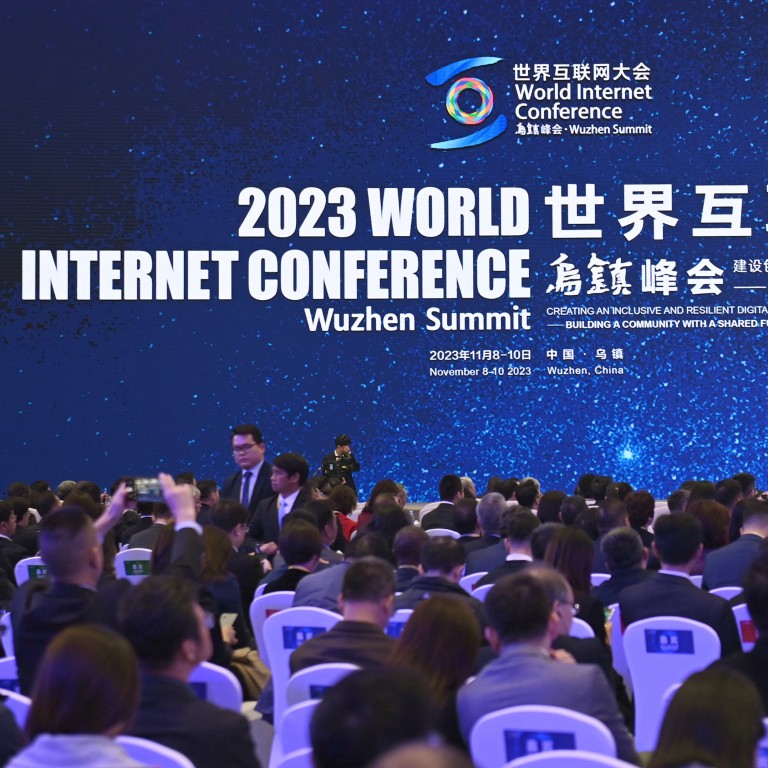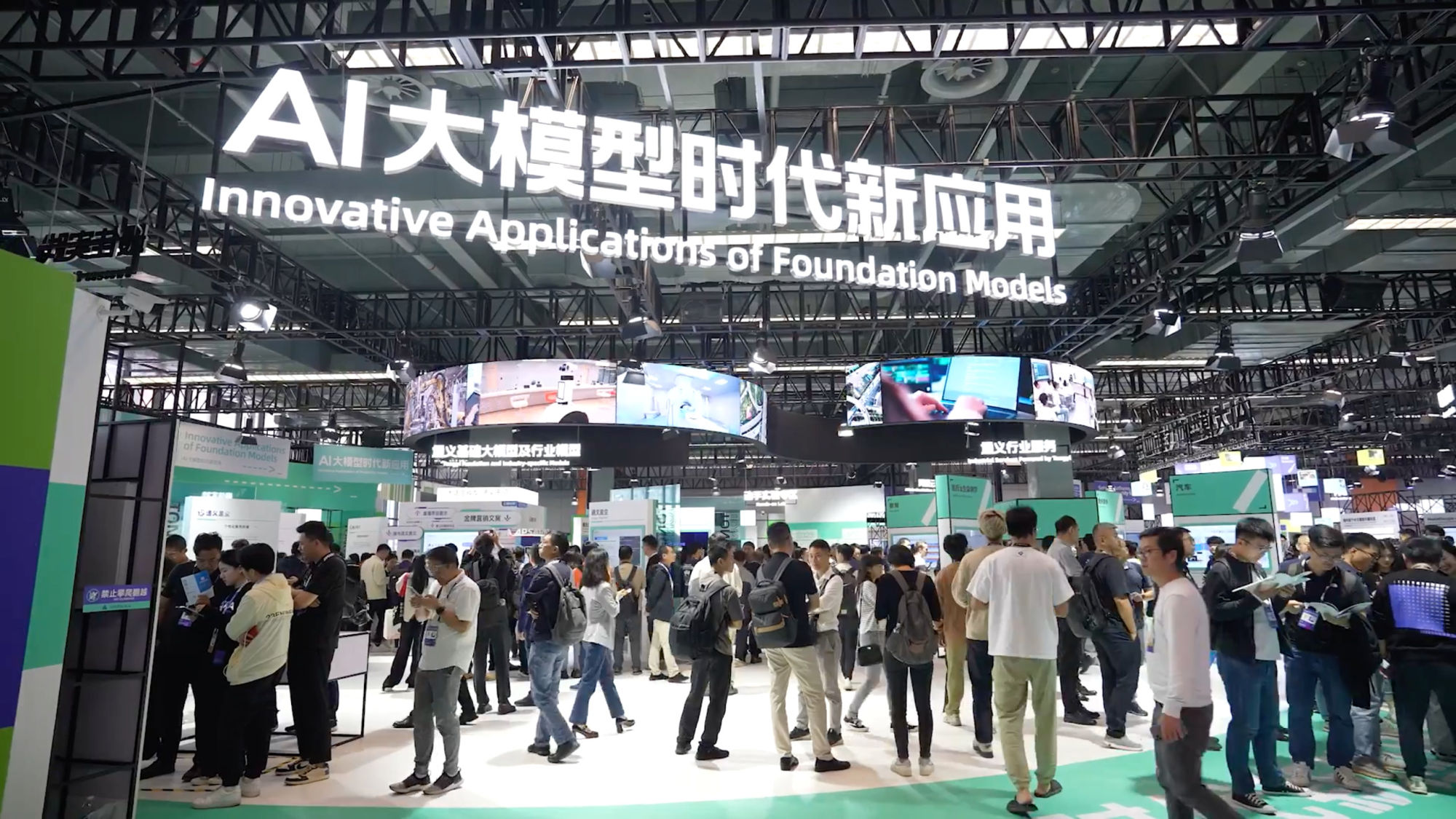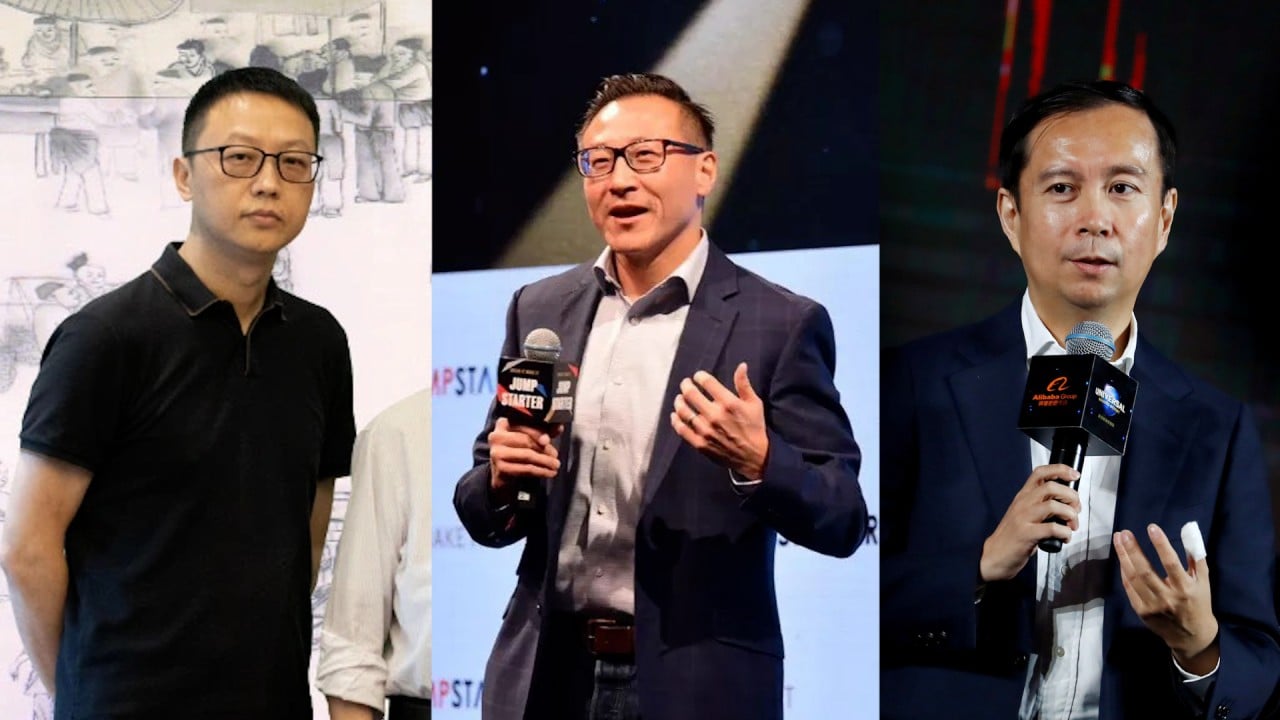
Alibaba CEO Eddie Wu reaffirms AI commitment, aims to turn e-commerce empire into ‘open tech platform’
- The Alibaba co-founder says the tech giant wants to be an open technology platform supporting AI innovation and transformation in various industries
- It marks the first time that Wu has spoken publicly about his vision for Alibaba since he took the reins from Daniel Zhang Yong in September
Alibaba is “becoming an open-technology-platform enterprise to provide infrastructure services for AI innovation and transformation in thousands of industries”, Wu told the audience at the World Internet Conference in Wuzhen, eastern Zhejiang province – an annual gathering of the country’s internet executives and government officials.
It was the first time that Wu, an Alibaba co-founder who took the reins from Daniel Zhang Yong in September, spoke publicly about his vision for the 24-year-old tech giant, which is undergoing a sweeping restructuring to break its sprawling business into six units, including e-commerce, cloud computing and entertainment.
While Alibaba’s e-commerce operations, Taobao and Tmall Group, remain the bread and butter of Alibaba’s business, contributing the most revenues and profits, Wu said the future of the company rests in AI.
“Over the past two decades, China’s digital transformation mainly took place in the consumer internet, and China has become one of the world’s top consumer internet powerhouses,” Wu said. “As AI continues to unleash new productivity, it is key for China to seek new breakthroughs in the digital economy.”
“In the AI era, Alibaba wants to be an open technology platform that serves the entire society in AI innovation and transformation, to adhere to its original mission of ‘making it easy to do business anywhere’,” Wu said.

Over half of China’s large language models run on Alibaba Cloud, according to Wu, who added that Alibaba aimed to develop an open AI system to “help small businesses and developers innovate at lower costs with higher efficiently”.
Named Tongyi Qianwen, Alibaba’s large language model is designed to support a wide range of apps and tools in a country where OpenAI’s services, including the latest GPT-4 Turbo model, is officially unavailable.
“In the foreseeable future, all of the products that we have taken for granted will change, and the next generation of smarter products will enter our lives.” Wu said.
“I believe that in the foreseeable future, AI assistants will be ubiquitous in everyone’s work, life and study. Every enterprise will also be equipped with AI assistants to help it adapt to the market.”


